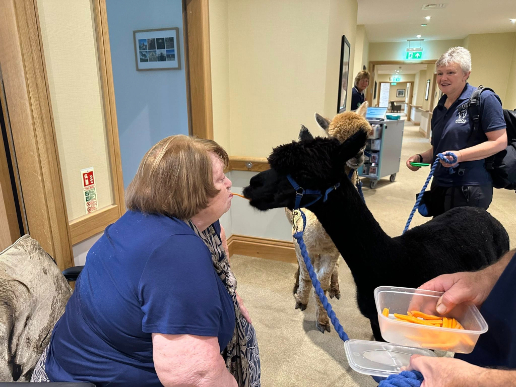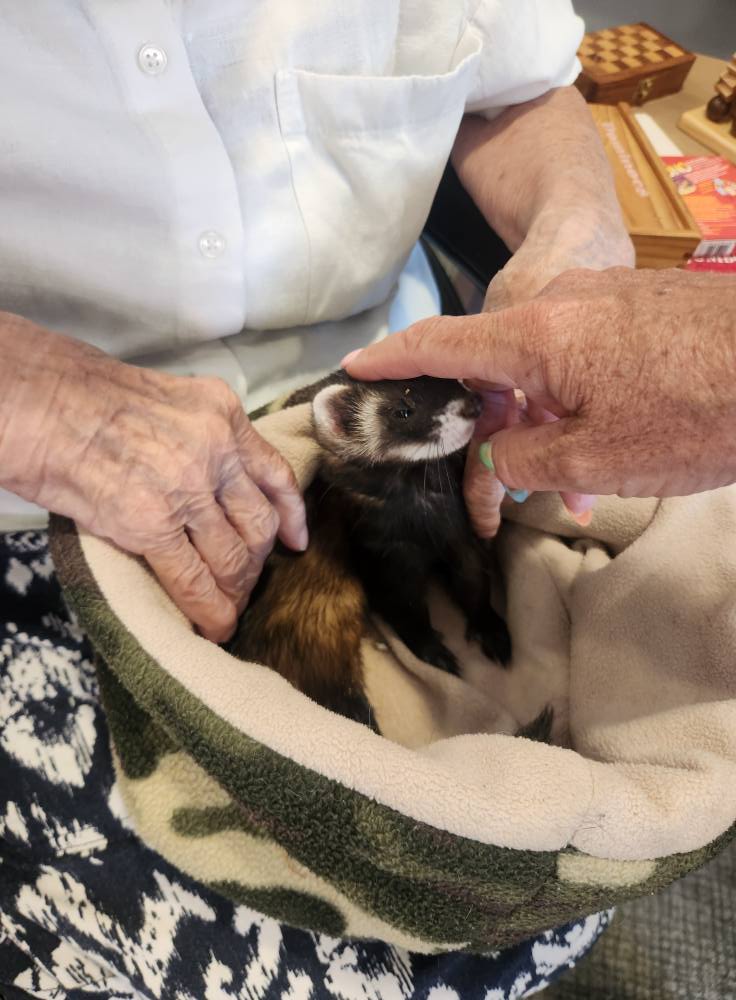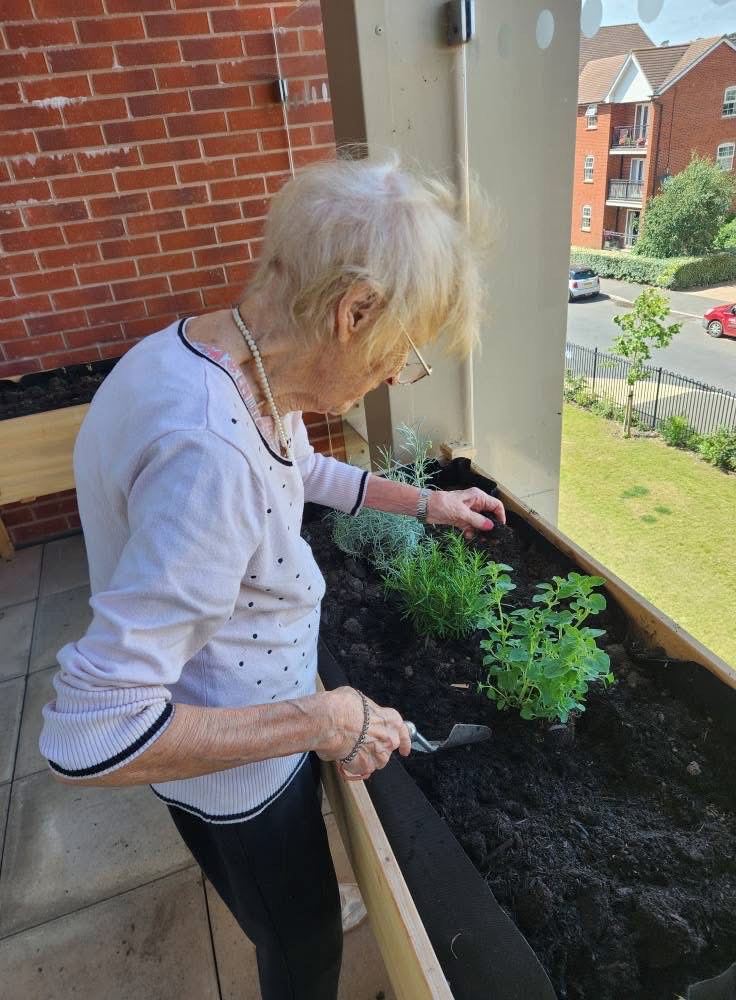How Much Do Care Homes Cost in Exeter?

In the UK, care services needed for the elderly are increasing in demand and residential care home and nursing home costs are reportedly one of the highest in Europe.
With the short supply of homes and high care fees, it is becoming increasingly difficult for care seekers and their families, particularly here in the historic city of Exeter, to determine if they can afford quality care. Families across Exeter and Devon are exploring their options, seeking a balance between compassionate support and financial predictability.
Below, we have explored all the options you can consider when moving into a care home or nursing home, and more precisely answering 'how much do care homes cost?', the care options available and what financial assistance you could be entitled to.
Average Care Home Fees For The Elderly In The UK
The average costs of care in Exeter and the larger region will differ compared to the rest of the UK, though specific costs will always depend on individual facilities and care needs. Understanding these costs is especially important for Exeter residents considering care options, as our city's long history often means families wish to find care close to treasured places and familiar surroundings.
Structure of Care Home Prices
Care home or nursing home fees vary depending on the type of care needed and because of this, it makes it difficult for care seekers and their family members to work out all of the costs involved. A care assessment of the person going into care may help determine the type and level of care required, as care services vary and can include many different types such as nursing care or dementia care.
Depending on the home, you might find that some residential care homes have a fixed term rate every week/month or they will charge a 'pay as you go' fee instead.
On top of the basic care home fees, you might find there is an additional cost to use the facilities that they have to offer, such as the use of the hairdressers, or for participating in certain social activities. Every care home and nursing home has different costs and pricing structures associated with them and some offer an all-inclusive option.

How Much Does Residential Care Cost?
In the UK, most homes offer a flat rate for their services. Residential Care normally covers accommodation, meals and care and this type of support is best offered to people who need assistance with daily living and personal care.
It is important that you speak to the home to see if there is anything else included. Services to consider are housekeeping, laundry and social activities.
Nursing Care Costs
Those receiving Nursing Care have access to all the same facilities and services as those in Residential Care, however, due to the additional support needed with Nursing Care, this tends to come at a higher cost.
This is because individuals that require Nursing Care may have more complex requirements and as a result need more medical care and support on a 24-hour basis.
Respite Care Costs
Respite care provides a service on a short-term basis to support a resident temporarily as they are unable to manage their own personal care. This is normally because they need additional help following an illness or surgery that they have had.
Moving into a care home or nursing home for Respite Care can provide families or caregivers with a break and is an amazing service to support those in need and their families.
Care home costs for Respite Care typically get charged on a daily or weekly basis depending on the predicted recovery time and level of care required. It is worth contacting the care home directly to find out if there is a minimum length of stay required for their Respite Care service.
Average Care Home Fees and What Is Included
The fees associated with a care home depend on the service required, the facilities they offer and the location. As a standard, care home fees cover your accommodation, meals, medical care and support.
You might find a care home or nursing home that offers an all-inclusive option which will mean that additional services won't come at an extra cost. The additional facilities and activities on offer from a care home can play a big part in deciding whether it is the right care home for you or a loved one.
It is important to check with each individual care home to compare the location, the amenities offered, and the level of personalised care provided, which can vary, and makes comparing care homes in Exeter vital. Many Exeter residents seek a sense of continuity as they or their loved ones require care. Choosing a care home that allows them to maintain their connection to Exeter's rich history and community becomes a priority.
Person-Centred All-Inclusive Care Homes
Living in an all-inclusive care home is becoming more popular in the UK as you pay a fixed rate that includes not only your care but additional facilities, services and support. This way of living gives residents and their families transparency and means they avoid paying additional hidden fees.
In 2023, the cost of living increase in the UK means that moving into a care home or nursing home allows older people to live in a safe and secure environment without worrying about increasing energy bills and living costs.
This model is gaining popularity in Exeter, offering peace of mind for residents and families seeking predictable care costs amidst rising living expenses. For those who've built their lives in Exeter, an all-inclusive model simplifies the financial aspects of care, allowing them to focus on continued enjoyment of their beloved city.
Paying For Care Home Prices
There are a number of ways to pay for care. Normally the cost of care is paid by the individual needing it or their family will contribute towards their care home costs.
However, in some cases, you might be granted local authority funding. The local council will pay towards the cost of care needed or help with the remaining cost.
You may be eligible for local council funding depending on certain circumstances. If you require financial help, it is best to have a financial assessment.
Financial Support Services
Not everyone is able to afford to pay for their own fees or have a relative to help them out. Some individuals are eligible for financial support to help towards the cost of their home fees and will need to get this support to pay for their care.
One of the first options to look into is a means-tested contribution from your local council. An assessment of the individual's income, savings and assets will be looked at and if they fall below a certain threshold, the local council will contribute towards that person's care costs.
Another option to cover your care home costs is to apply for NHS Continuing Healthcare (CHC) funding. NHS-funded nursing care is available to individuals that have significant healthcare needs and to qualify, you will need to have an assessment with a medical professional.
If someone doesn't qualify for either the local authority or NHS funding, they may be eligible for a deferred payment agreement. This arrangement will allow an individual or their family to pay back their local authority for all nursing care costs once assets, such as a house, have been sold or that person has passed away.
It is important to remind you that financial support through your local council or the NHS is not guaranteed as it can vary depending on an individual's circumstance. To help support you with your finances, it is always recommended to speak to a financial advisor to understand what are the best options for you and get the financial help you need.
Local Authority Funding
This funding is when the local authority helps to pay care home fees for elderly people who need financial assistance. Local authorities base their funding on a financial assessment of an individual's savings and assets.
If the means test provides information that makes the elderly person eligible for funding, then the local authority will pay for the care for that individual. However, it is important to know that not all residential care or nursing homes accept local authority-funded residents and may only accept self-funders.
Another point to remember is that the care home costs might not be fully covered and a top-up fee may be required from your local council to pay for care. If someone's assets and savings threshold is over the limit, they may be required to pay the remainder of their own fees.
Furthermore, personal expenses allowance will not be covered with local council funding. If you need to use additional services or amenities you would need to self-fund this or find a care home that covers personal care services in their pay structure.

NHS Continuing Healthcare Funding
If you are an individual with significant healthcare needs, you may be able to require NHS funding. This funding is known as NHS Continuing Healthcare (NHS CHC).
The costs of a nursing home can be covered by the NHS Continuing Healthcare funding. To get this funding you will need a separate assessment and the means test is not considered. If approved, your care home fees and anything related to your health can be covered.
There are very specific and complex requirements to get ongoing NHS-funded nursing care. The individual must have a severe disability, a long-term illness or a terminal illness and will require an assessment from a medical professional, such as a registered nurse.
If it is concluded that the individual is eligible for NHS Continuing Healthcare, the NHS will fund the full costs of their care home fees. This includes accommodation, meals, services, nursing care and any other medical-related expenses.
Like all of the other financial support options, it is important to remember that not everyone is eligible to receive NHS-funded care fees.
Self-Funding Your Care Costs
Self-funding your care costs is also an option when it comes to paying for care. This option is when an individual or their family pays for their own care costs without receiving any help from the local authority or the NHS. This cost of care includes accommodation, meals, housekeeping and any other services that are needed for that individual.
Being a self-funder is dependent on your savings and assets. This is normally the best option for individuals who do not meet the requirements due to their savings threshold being too high for NHS funding or local authority support and will need to pay for care themselves.
If your money is within assets, you may be eligible for a grant from the local council. This is when the council pays for your care with a loan. This is then repaid when a property or these assets are sold. Another option would be an equity release but we would recommend you speak to a financial advisor about this option.
Care At Alexander House
Alexander House is proud to serve Exeter families with an all-inclusive, person-centered care home situated in Pinhoe. Our home offers luxury accommodation for 67 residents. Being an all-inclusive home means the cost of your care is covered and allows you to focus less on complicated fees and more on enjoying the services and amenities that the home has to offer.
Our peaceful Pinhoe location offers a tranquil setting, yet we're conveniently located for visits from across Exeter. Exeter's long history means many of our residents have deep connections across the city, and our proximity to the Roman wall walk, the vibrant city center, and beautiful green spaces makes it easy for family and friends to visit often.
Our home was purpose-built to provide residents with an enriched and fulfilling lifestyle. In addition to our luxury environment and first-class facilities, we offer Nursing Care, Residential Care, Dementia Care and Respite Care, by an experienced team.
At Alexander House Care Home, our utmost priority is to create a luxurious yet comfortable environment for all our residents. We have worked tirelessly to create a home that radiates opulence and ensures that both residents and their loved ones feel supported and well-cared for by us.
Our care home features beautiful en-suite bedrooms, private gardens, a comprehensive activities program, a cinema room, and many other on-site facilities, providing residents with choice and variety every day.


Find Out More
If you have any further questions about Alexander House and what we can offer your family then get in contact with us by emailing info@alexanderhousecare.com, by phone at 01392 579 777 or by filling out our contact form.






